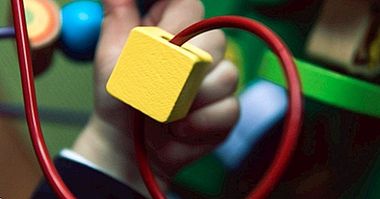Do punishments really work?
His six-year-old son insists that he wants to play soccer in his living room, with the latent possibility of destroying vases and windows; then you stand firm, and with your face as serious as your facial muscles allow it, threatens to punish you.
The next day, his little offspring of hell refuses to do homework, and you again threaten to punish him . Later, he seems intent on annoying his younger sister, and you, what a novelty, threatens to punish him.
All these cases, of course, are fictitious, but they represent well the discipline methodology that many parents use. But, Are punishments really effective? The answer depends on what you intend to achieve with your child.
- Related article: "Positive Punishment and Negative Punishment: How do they work?"
Does it work punish?
If what you are looking for is to comply with an order immediately , most likely the strategy will be successful. But in that case, your child will be accessing what you ask for out of fear, for fear of punishment; not because he respects him as a father or because he believes that to proceed in that way is the right thing to do.
Implicitly, you will be teaching the child that problems are solved by threatening or exercising power . And that the best way to get people to do things is by putting fear under their skin.
- Maybe you're interested: "The 8 most useful Educational Psychology books for fathers and mothers"
The Jonathan Freedman experiment
An astute psychologist named Jonathan Freedman made an interesting experiment that illustrates the previous point. He attended a school where he took a group of children and took them, one by one, to a special room where there were several cheap toys and grenades, among which stood a fantastic robot full of lights and gadgets that were operated by remote control . In this context, I was telling the child that I had to leave the room for a few minutes, and that meanwhile, I could play with any of the toys, except the robot.
"If you get to touch the robot, then I will find out and I will be very, very angry," he said with his best ogre face. Then, he left the room and watched what the child was doing through a mirrored glass. Obviously, almost all the children who went through the experiment struggled to control their impulses and avoided approaching the robot.
In the second condition of the same experiment, Freedman simply told the children, that while they were absent for a few moments, they could entertain themselves by playing, but that "it was not good for them to play with the robot". In this case, he did not resort to threats of any kind, he simply assured them that it was not right to touch the robot. On this occasion, as in the previous one, practically all the children avoided approaching the robot, and they settled for the other toys devoid of attractiveness.
The effect of the absence of authority
But the interesting thing is what happened a little more than a month later. Freedman sent a collaborator to the same school to repeat the same sequence with the same children, both from one group and the other. Only this time, when the woman had to leave the room, she said absolutely nothing to the children. In other words, they were free to do whatever they pleased.
What happened was absolutely amazing and revealing. The boys of the first group, who a month before had avoided playing with the robot by adjusting to an external order issued by a frowning adult, not being present now that adult and disappeared, as a consequence, the threat, they felt free to play with the forbidden toy.
On the contrary, the boys of the second group, still not being Freadman present, did exactly the same as the previous occasion, and stayed away from the striking robot. In the absence of an external threat, in the first place, it seemed that they had developed their own internal arguments that justified why they should not play with the robot.
Maybe so convinced that it was his decision, and not the arbitrary imposition of someone else , they felt prone to act in a manner consistent with their beliefs. These children, being free of external pressures, assumed responsibility for their own actions, probably feeling that they were the ones who voluntarily chose what they wanted to do.
- You may be interested: "Operant conditioning: concepts and main techniques"
The importance of motivation
The moral is clear: both punishments and rewards are external motivations that do not generate a long-term commitment, vanishing the desired behavior as soon as the desired consequence disappears.
In everyday life, I have often observed with my own eyes, as some parents, even worse, punish their children forcing them to do homework or to read a book , creating the false notion that these activities are in themselves bad, unpleasant and worthy of being avoided. In return, they are rewarded with more hours of television and video games, reinforcing the idea that these activities are desirable and have a great power of gratification.
Yes, dear readers. It is common in these times, that our children grow up believing that reading is negligible and should be avoided at all costs, and watching television is the path to pleasure and personal success. If you are the father of a small child, or plan to be as soon as possible, I entrust you to do things as appropriate: educate him on the basis of a minimum set of moral criteria if he wants to eventually become a good adult. It does not take more than that. Do not teach him to obey just for fear of punishment .
At some point, if you are lucky, you will become old. Do not complain if your historically intimidated son has now become a spiteful adult, and decides to commit him to a seedy geriatric, or send him on holiday to Ethiopia in the middle of summer.



















